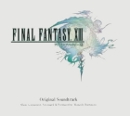
|
|
1080° Snowboarding Original Soundtrack :: Review by Chris
 |
Album Title: | 1080° Snowboarding Original Soundtrack |
| Record Label: | Pony Canyon | |
| Catalog No.: | PCCG-00454 | |
| Release Date: | May 20, 1998 | |
| Purchase: | Buy at Game Music Online |
Overview
1080° Snowboarding was one of Nintendo EAD's many successes for the Nintendo 64, selling over a million copies and gaining praise for innovative gameplay, graphics, and sound. Crafted by Mario Kart 64's Kenta Nagata, the soundtrack tried to push its consoles to the limited with a modern blend of rock, hip-hop, techno, and voice samples. It received mixed reception, but was mostly well-received by those who played the game. Exactly ten years on, copies of the 1080° Snowboarding Original Soundtrack are still available at online stores, but the enthusiasm seems to have dampened. Is the soundtrack definitively great or was it merely something different for its time?
Body
"Vacant Lives" opens the soundtrack with a punk rock imitation. Plenty of rhythm and energy is created by the incessant distorted guitar bass line and the heavy drum beats. Above these few instrumental components a menacing but muffled male vocalist utters incomprehensible screams and grunts. While the ideas are interesting, the low quality recording, extremely repetitive qualities, and vacant imitative features make this an embarrassing effort in reflection. "Grasp Power" takes a similar approach, though the relatively intelligible vocals have a more persistent aggressive drive. Unfortunately, the instrumentals between the two themes are almost identical and the guitar riff, despite providing initial energy, wears down the theme into something static by the second minute. "Work Your Body" is the first attempt at a hip-hop theme from Nintendo... and it shows. Using a collection of library voice samples, the phrases 'work your body', 'push it in', 'push it down', and 'GET DOWN!' are repeated again and again above thin generic beats. It's a hilarious track, but perhaps wasn't intended to be.
Voice samples return in "Dance!", the first truly obnoxious track of the soundtrack. This time a provocative female repeats 'I like, I like that... I like that baby" over and over before occasionally providing very weird ullulations or proclaiming "there goes the boom!". Accompanying her is a mind-numbing disco beat, but at least the soundtrack is reflecting some stylistic variety. I'm still confused as to whether this track intended to have sexual connotations or whether the few samples used got lost in translation. By "Call Me", though, she seems to be getting pretty desperate leaving weird persistent answer machine messages like "call me...", "hello, hello, hello", "hiiii!", "oh baby", and "wanna call boy?". But worry not, for our bunny boiler is occassionally greeted with the response "how do you do?" from a polite — arguably scared — man! Another surreal addition to the soundtrack is "This is a Test". This time the words "this is a test", "this is only a test", etc. recorded for technical testing purposes are exploited in conjunction with upbeat guitar riffs and dense drum beats. I wonder if the original speaker would find the mix horrifying, addictive, or, like me, a wierd mixture of both?
The instrumental tracks are a mixed bunch. While the gritty guitar riffs are feeling old by "Blue Flame", at least some distorted solos add something different (albeit directionless and amateurish) to the soundtrack. "Golden Forest" is a strange blend of the thrashing guitar riffs of 1080° Snowboarding and the dated rock organ use of Mario Kart 64. More Mario Kart 64 references can be heard in "Lost", reminiscent of the more downbeat end-of-race themes, and "Winner", which resembles a rocked-up victory theme. "Half Pipe" features some of the most complex electronic beats on the soundtrack, but unfortunately nothing is added to them so the track quickly bores. Considerably better is "Review", which assembles similar beats in conjunction with atmospheric synth pads, but even this doesn't cope with a 4:29 playtime. The thematically related "db" and "White Out" also use similar combinations of atmospheric synth and fast beats, but ultimately to the point of overkill. "Give It To Me" and "jz" also don't add much original to the soundtrack. A late addition to the soundtrack is "Vacant Lives (1080° Remix)"; despite the potential for a high definition remix, this is more of a direct recapitulation with slightly more elaborate instrumentals.
Summary
Ten years on, this soundtrack tends to be approached in three ways. Many dismiss it as 'absolute junk' given it features nothing but repetitive and shallow imitiations. Others consider it a 'technologically limited innovation', noting how the soundtrack ambitiously streams vocal samples on a limited system and attempts to bring rock, hip-hop, and techno to Nintendo. The more bizarre among us treat this soundtrack as 'hilarious occasional listening' thanks to 'pure gold' such as "Work Your Body", "Call Me", and "This is a Test". I personally share all three opinions. While I think Nintendo were right to aim for a popular music score for the game, Kenta Nagata was completely out of his depth when assigned to compose it and the sound department didn't help matters with their grossly limited provision of samples and low fidelity sound programming. Still, not even Koji Hayama's or Takenobu Mitsuyoshi's most ridiculous achievements make me laugh and cringe as much as "Call Me". As a result, I only harbour a small amount of bitterness about listening to all those boring, obnoxious, or downright disturbing tracks.

